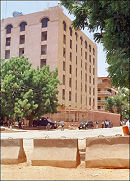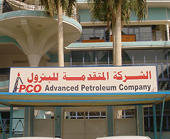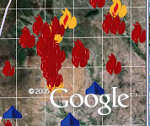 An article in today’s CNN Money contains some interesting tidbits about Weatherford’s operations in sanctioned countries, which we first reported here, and which have been the subject of a governmental investigation.
An article in today’s CNN Money contains some interesting tidbits about Weatherford’s operations in sanctioned countries, which we first reported here, and which have been the subject of a governmental investigation.
First, the article notes that Weatherford’s divestment of its operations in Sudan allowed it to donate its many assets in Sudan to Thirst No More, an organization seeking to drill water wells in Sudan.
Among the most valuable items it received was Weatherford’s Nissan truck, which hauled oil-drilling equipment in Sudan, and which will now pull water rigs and pipes in parched Darfur. And most of the furniture and office equipment from Weatherford’s Khartoum villa will be shipped to the Thirst No More base in North Darfur’s capital El Fasher.
All though such a donation is not a traditional basis for mitigation of penalties owing as a result of doing business in sanctioned countries, I certainly hope that it might be so considered here, assuming that there is any basis for penalizing Weatherford’s operations in Sudan through a foreign subsidiary.
Second, the article points to a SEC Form 8-K, filed last September, where Weatherford said it was discontinuing its business through its foreign subsidiaries in “Cuba, Iran, Sudan and Syria.” The reference to Cuba more or less jumps off the page of Weatherford’s 8-K and certainly explains the most serious problem Weatherford may have with respect to the governmental investigation of its operations in sanctioned countries.
The reporter who wrote the CNN article missed the significance of this revelation, apparently under the mistaken impression that there’s a loophole that permits U.S. companies to operate in embargoed countries through their foreign subsidiaries:
The company used a loophole in U.S. sanctions laws – used also until recently by Halliburton … in Iran – which allows U.S. companies to operate in embargoed countries, so long as no U.S. citizens are involved, and it operates under a foreign subsidiary.
This exception applies only to operations in countries sanctioned under the International Economic Emergency Powers Act, like Iran and Sudan, for example, but not to operations in countries sanctioned under the Trading With The Enemy Act, like Cuba and North Korea. Operations by foreign subsidiaries of U.S. companies in those two countries is a violation of the Trading with the Enemy Act and can give rise to civil and criminal penalties. Once Weatherford admitted it was doing business in Cuba, it had, as they say, a situation on its hands.

 Posted by
Posted by  Category:
Category: 


 The Office of Foreign Assets Control (“OFAC”) released today its
The Office of Foreign Assets Control (“OFAC”) released today its  The Office of Foreign Assets Control (“OFAC”)
The Office of Foreign Assets Control (“OFAC”)  The
The 

